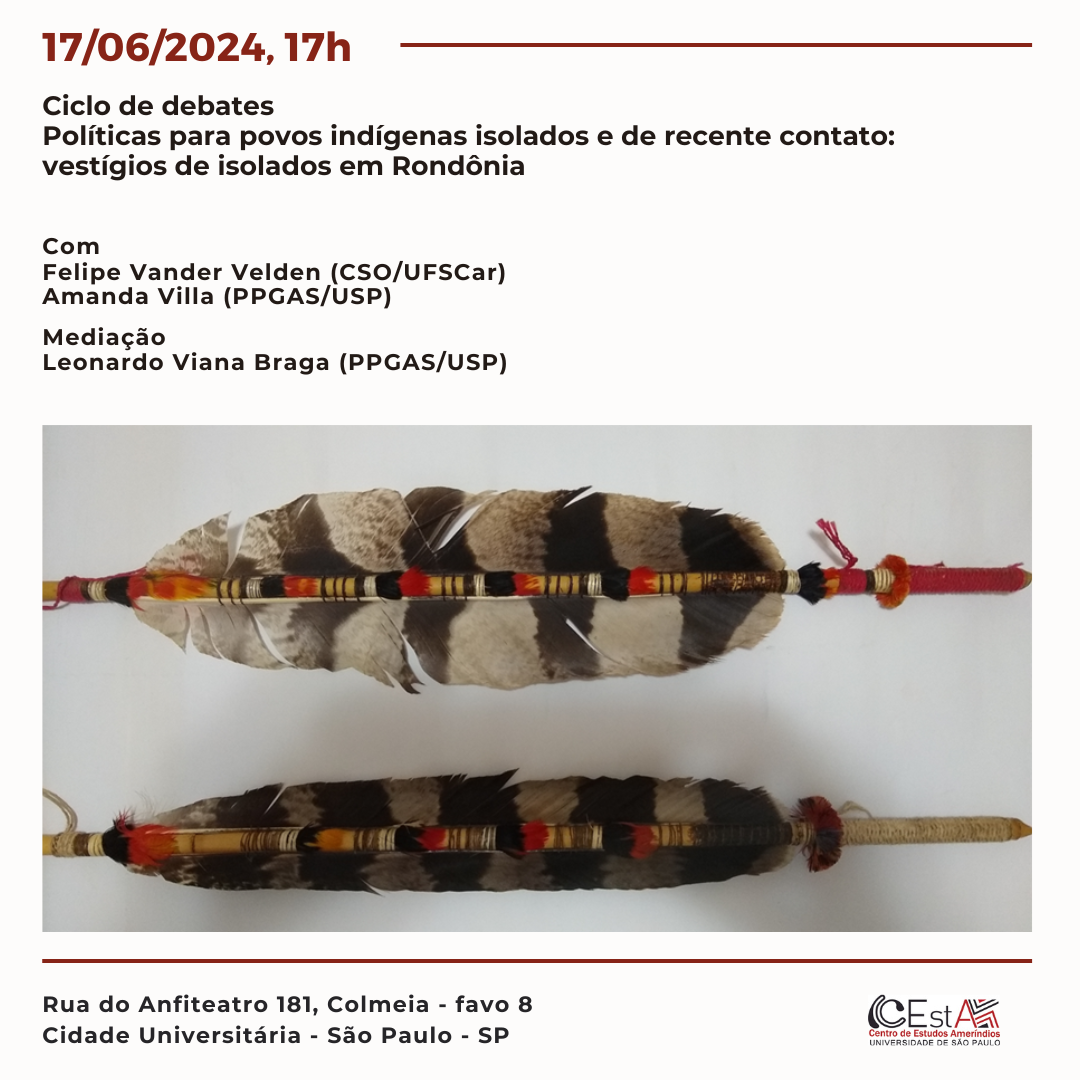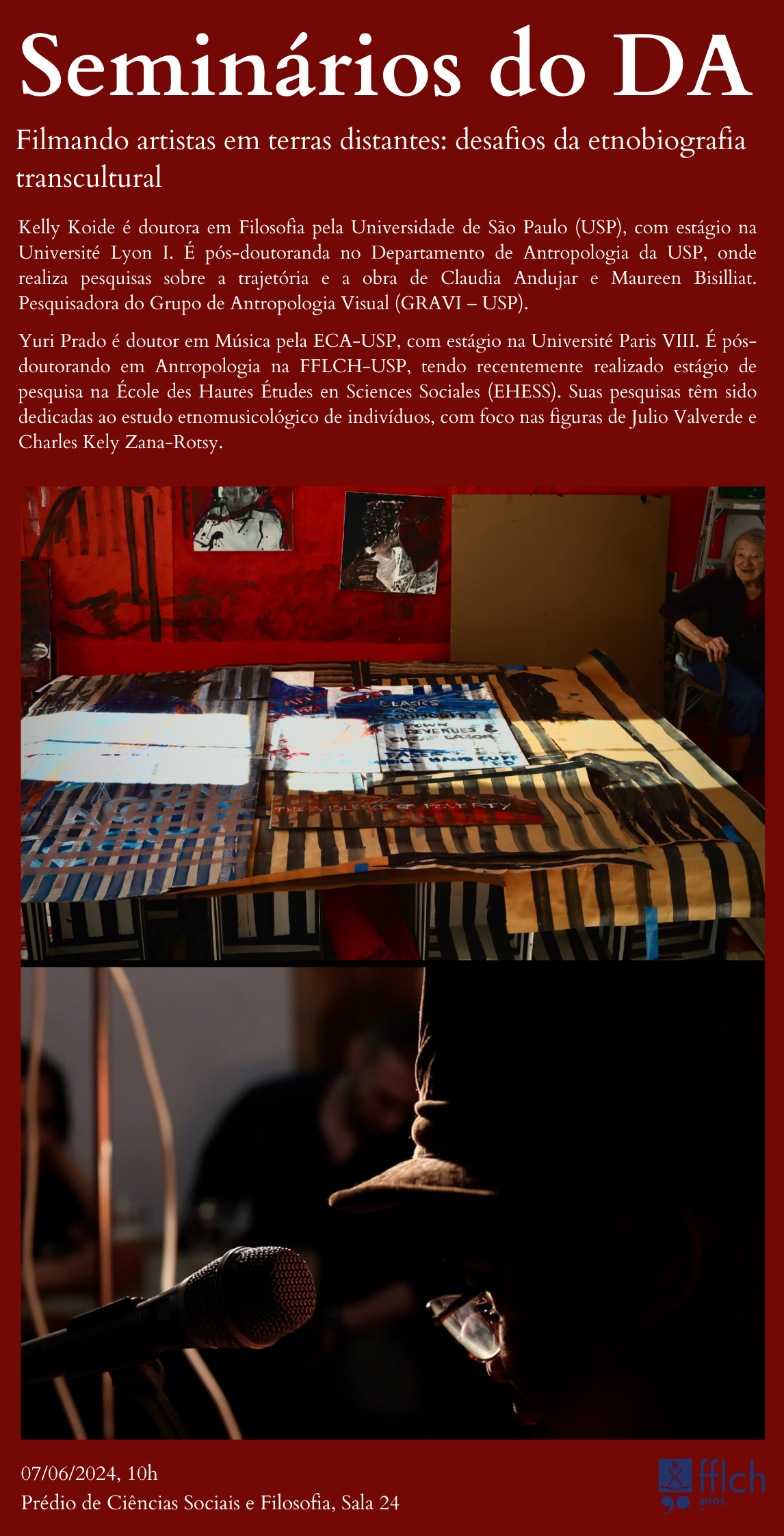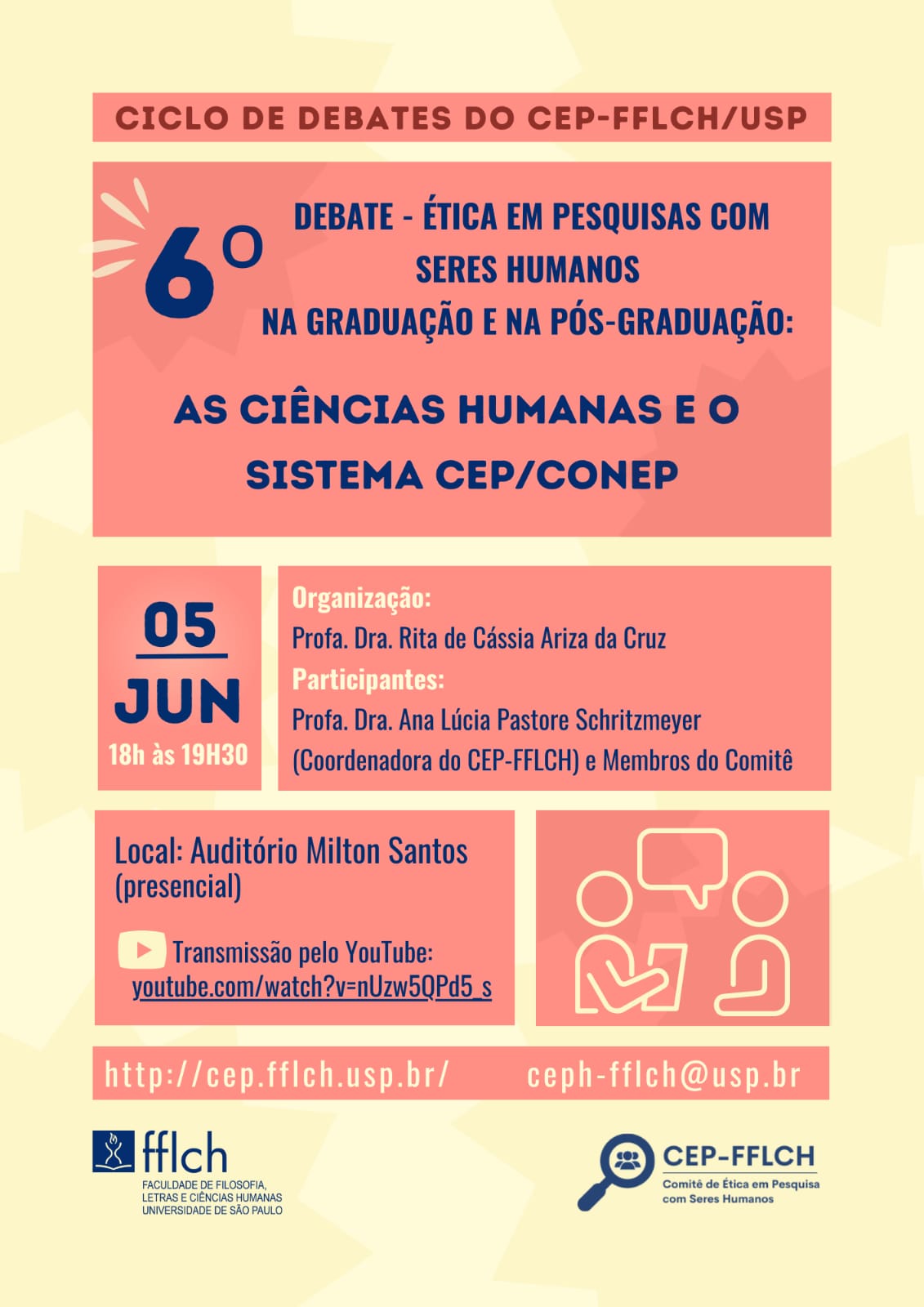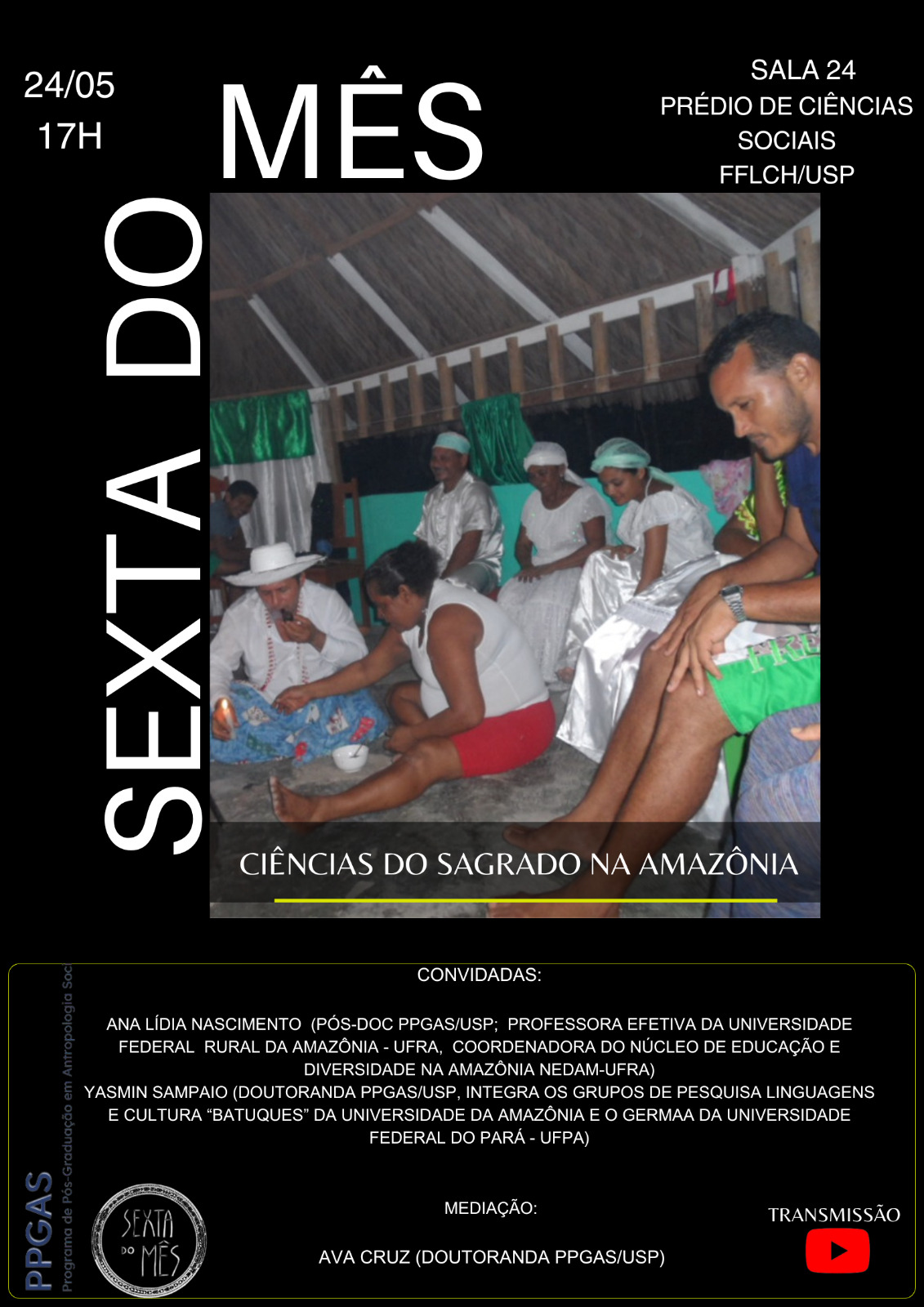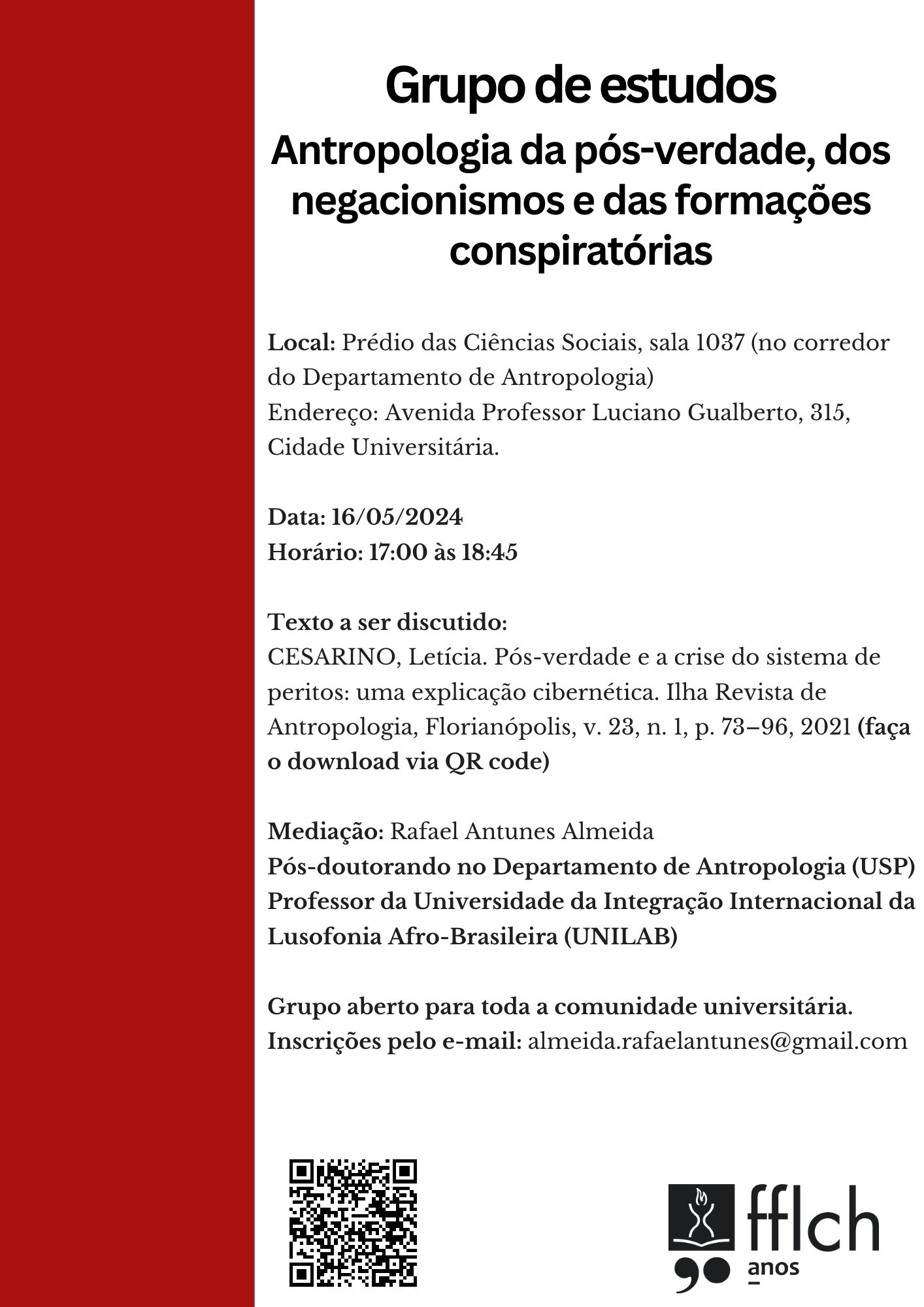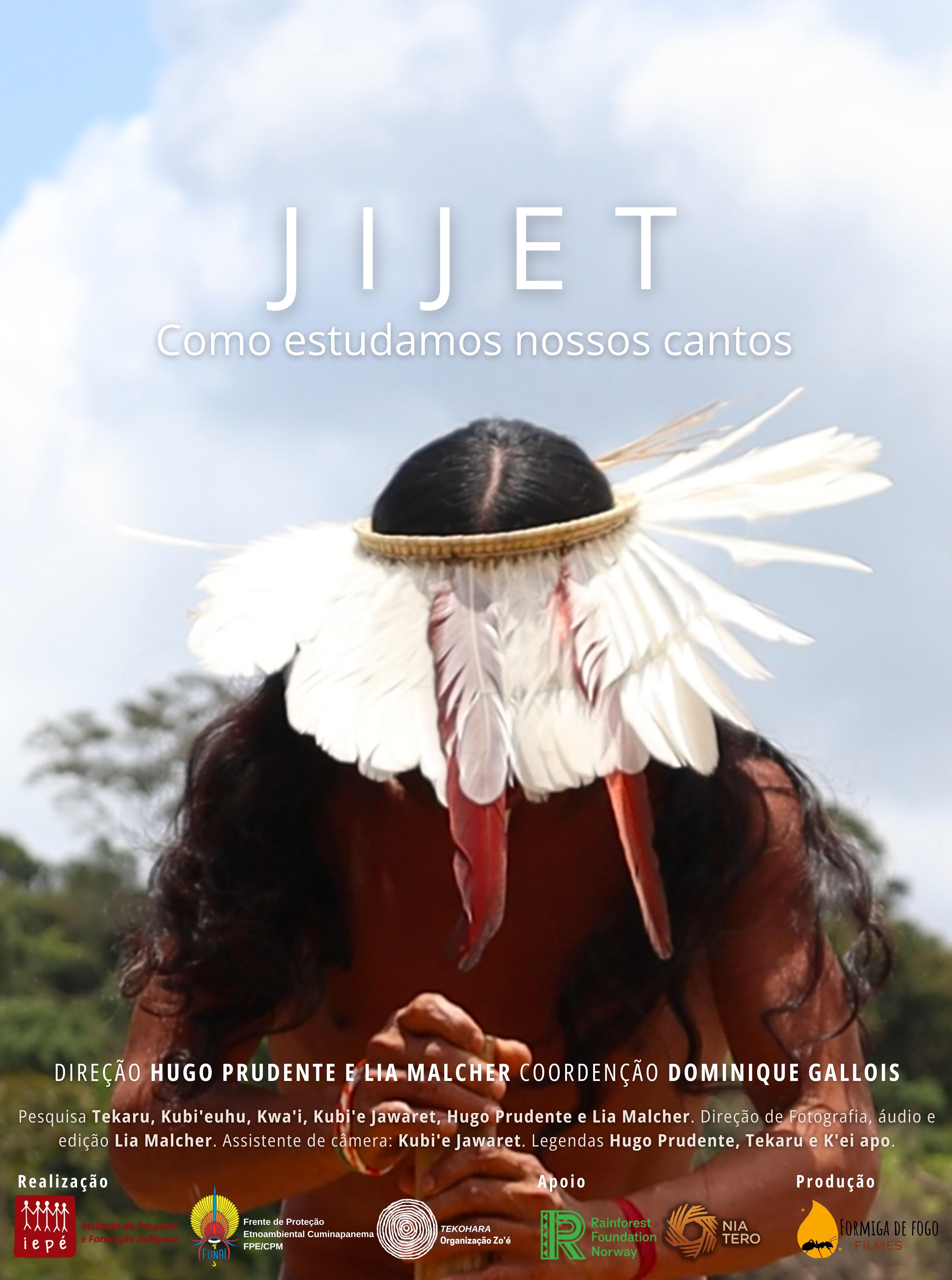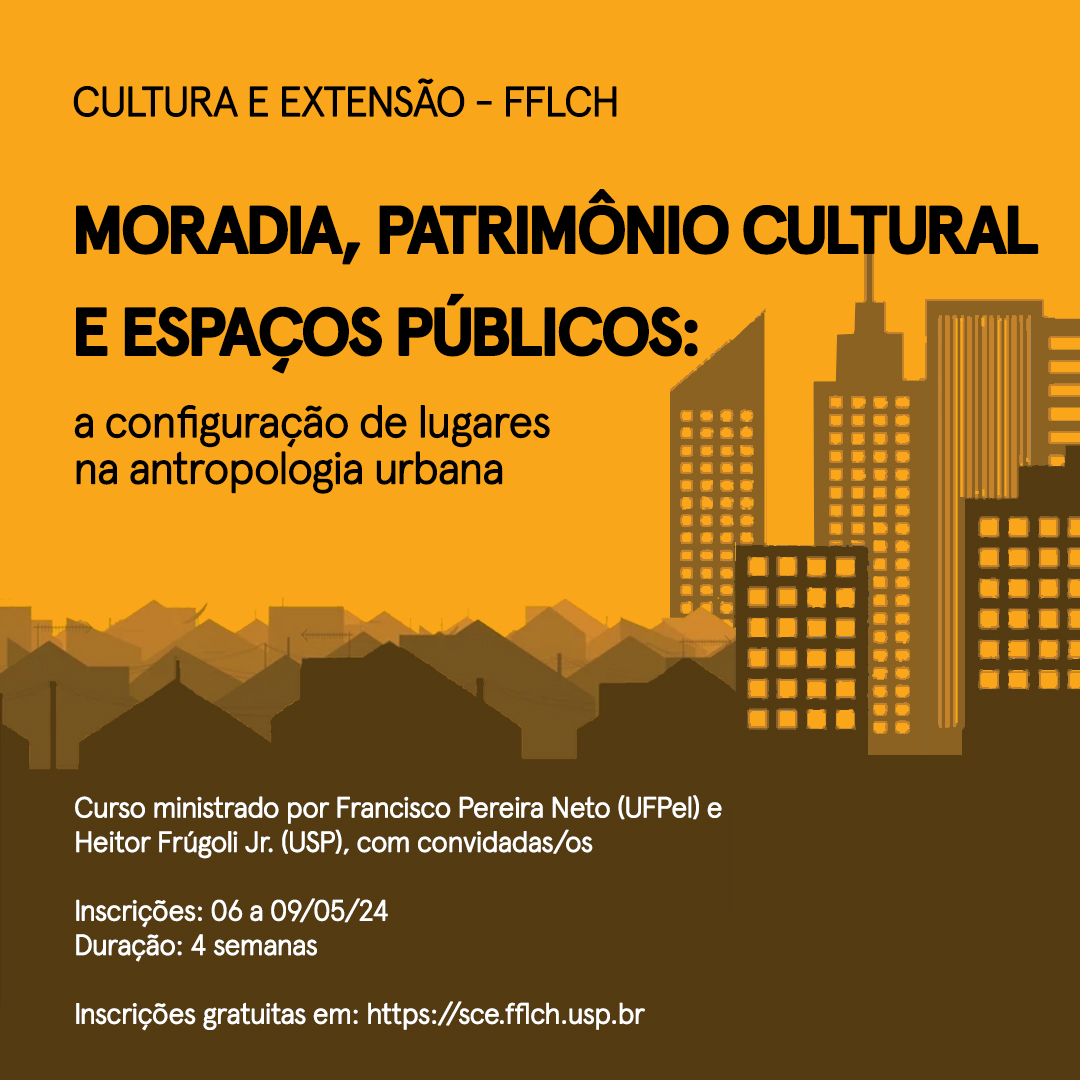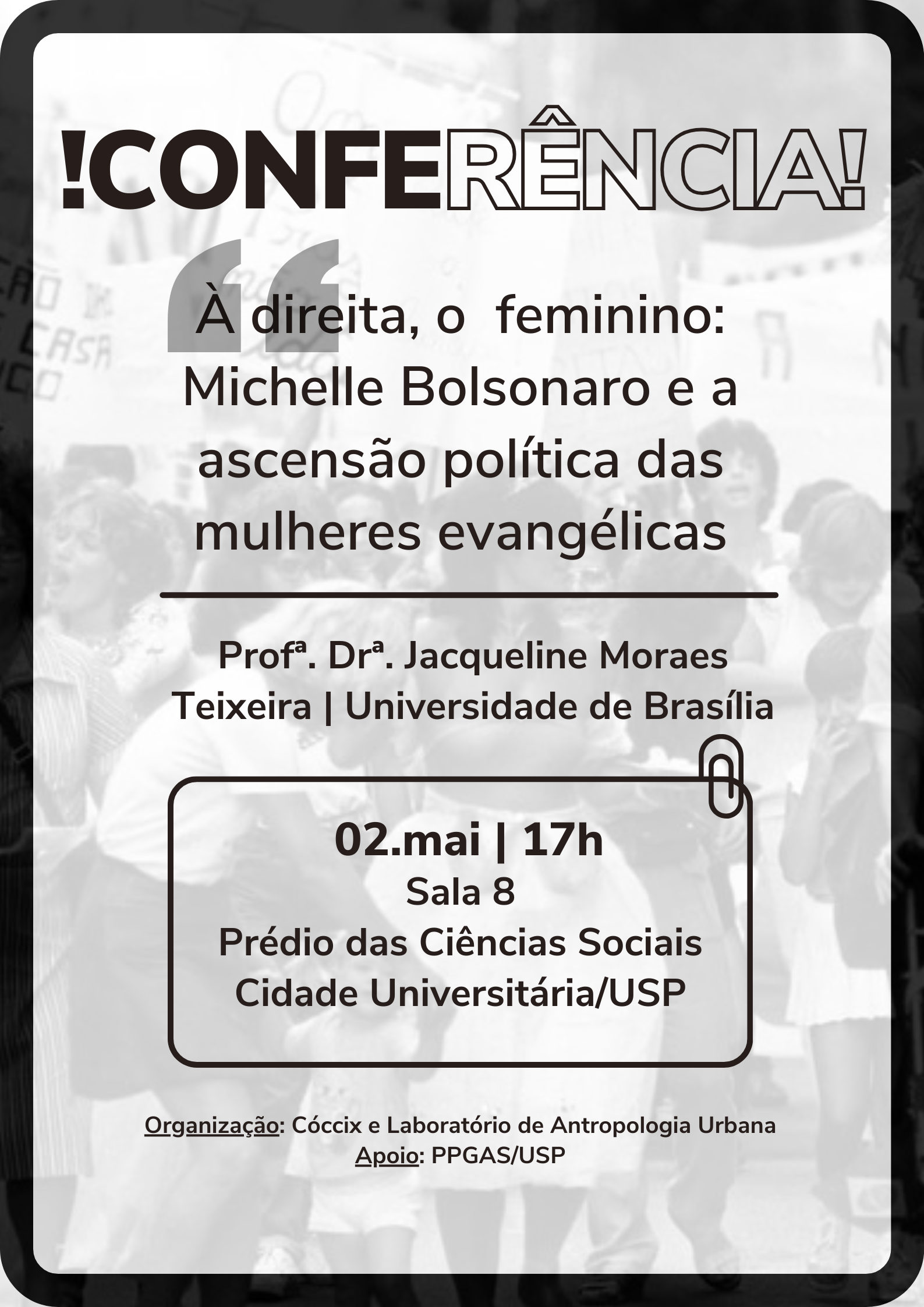Events
Cycle of debates
Policies for isolated and recently contacted indigenous peoples: traces of isolated people in Rondônia
With
Felipe Vander Velden (CSO/UFSCar)
Amanda Villa (PPGAS/USP)
Mediation
Leonardo Viana Braga (PPGAS/USP)
06/17/2024, 5pm
Rua do Anfiteatro 181, Colmeia - favo 8
University City - São Paulo - SP
References under study: controversies about the nature, culture and ethnicity of isolated indigenous peoples in Rondônia (Felipe Vander Velden (CSO/UFSCar)
The forests of Rondônia are home to a significant set of references to isolated indigenous peoples. As the region is home to considerable linguistic and cultural diversity, defining the ethnolinguistic belonging of these reference peoples is quite problematic. In addition to this lack of definition at the ethnolinguistic level, several of the references to isolates – especially those “under study” or “not confirmed”, or simply called “information” – have also been used for discussions at levels that we will call interethnic and specific, which they discuss both the Indianness and the humanity of these collectives. These are cases in which the ghostly character of these people seems even more pronounced, and discussions not only about whether traces are products of indigenous people, but even whether they are the result of human actions. However, the so-called “unconfirmed references” have been little studied in their multiple dimensions. This article advocates for greater attention to such scenarios as a way of expanding our reflection on the nature of what can constitute an indigenous and human collective.
Suggested reading: https:// periodicos.unb.br/
Making ourselves noticed, making us move away: an ethno-historical journey about indigenous people in isolation in the Massaco Indigenous Land (Amanda Villa (PPGAS/USP)
The protection of peoples in isolation in Brazil and, therefore, of the territories they occupy, is a task legally assigned to the Ethno-environmental Protection Fronts, decentralized units of the National Indian Foundation. As a rule, his work is based on investigative strategies: searches for local remains are combined with oral interviews and records of ethno-historical occupation. In this sense, this article intends to contribute with an ethno-historiographical overview of the occupation in the middle Guaporé river, more specifically the stretch between the Branco and Colorado rivers, where the Massaco Indigenous Land is today established. Occupied by indigenous people whose defining characteristics of their ethnic belonging to others are essentially based on their material culture, since their language has never been described, the territory is a reference in protection and mystery. At the same time that the abundant placement of traps (caltrops) expresses their desire to be left in peace, their traces give clues to their identity and are read with curiosity by indigenous and non-indigenous people, who rely on the analogy with oral and written stories. to do so.
Suggested reading: https ://periodicos.unb.br/
Speakers: Kelly Koide and Yuri Prado
Kelly Koide has a PhD in Philosophy from the University of São Paulo (USP), with an internship at Université Lyon I. She is a postdoctoral fellow at the Department of Anthropology at USP, where she carries out research on the trajectory and work of Claudia Andujar and Maureen Bisilliat. Researcher at the Visual Anthropology Group (GRAVI – USP).
Yuri Prado has a PhD in Music from ECA-USP, with an internship at Université Paris VIII. He is a postdoctoral fellow in Anthropology at FFLCH-USP, having recently completed a research internship at the École des Hautes Études en Sciences Sociales (EHESS). His research has been dedicated to the ethnomusicological study of individuals, focusing on the figures of Julio Valverde and Charles Kely Zana-Rotsy.
The films “Jail Birds” and “Open Gasy”, directed, respectively, by post-doctoral students Kelly Koide and Yuri Prado, have in common the focus on artists from an ethnobiographical perspective. In “Jail Birds”, artist Henrietta Mantooth talks about her works, which discuss mass incarceration in the USA, in her studio in Manhattan and during the assembly of a permanent exhibition at Hudson County Community College. “Open Gasy” portrays the trajectory of Charles Kely Zana-Rotsy, a Malagasy guitarist and singer who played a significant role in the world music scene in France. By screening the two films, the directors intend to discuss the challenges of film production in a foreign country, as well as the establishment, in a limited time, of an ethnographic relationship mediated by the camera.
6th Debate - Ethics in research WITH HUMAN BEINGS at undergraduate and postgraduate levels: the Human Sciences and the CEP/CONEP System
Organization:
Prof. Dr. Rita de Cássia Ariza da Cruz
Participants:
Prof. Dr. Ana Lúcia Pastore Schritzmeyer (CEP-FFLCH Coordinator) and Committee Members
Stream on YouTube: https://www.youtube.com/watch?v=nUzw5QPd5_s
The meeting is organized by the collective of fellows of the Post-Doctoral Program for Black Researchers, recently implemented by USP through its Dean of Inclusion and Belonging and is part of a set of mobilizations for the continuity and expansion of this policy. The event aims to discuss the future of affirmative policies within the scope of research at what is considered the most prestigious public university in Brazil, in addition to exposing the work that has been developed by black researchers at USP. The event is open to the participation of anyone interested in learning about the production and discussing the advancement of affirmative policies at the university.
PROGRAMMING
Date: May 27th
Location: Institute of Advanced Studies (R. da Praça do Relógio, 109 - Butantã campus)
12pm-6pm Poster exhibition with work by Black Post-Doctoral Students at USP
1pm Meeting of black researchers at USP
3pm Table: Consolidating Affirmative Policies in Scientific Research at the University of São Paulo
5pm Work Presentation and Networking (direct interaction between researchers and guests)
JOB REGISTRATION UNTIL MAY 19TH
Submission of works is open to all black people who 1. have completed their doctorate or post-doctorate at the University of São Paulo in the last five years; 2. are currently carrying out post-doctoral research at USP, regardless of connection to any program or scholarship. In addition to simply displaying posters, this will be a space dedicated to direct interaction between researchers and guests. An opportunity to generate visibility, build a network and open future opportunities for black professionals graduated from USP.
Registration: https://posdocnegresusp.
More information: posdocnegresusp@gmail.com
Friday of the Month: Sciences of the Sacred in the Amazon
24/05
5pm
Room 24 of the Social Sciences Building at USP
Transmission via Youtube (uspfflch channel)
Guests:
Ana Lídia Nascimento (Post-Doc PPGAS-USP, Effective Professor at the Federal University of the Amazon - UFRA)
Yasmim Sampaio (PPGAS-USP PhD student)
Mediation:
Ava Cruz (Doctoral student at PPGAS/USP)
The existence of the Science of the Sacred present in the practices of indigenous pajelança, cabocla and Afro-Brazilian religions is observed through a wide variety of procedures based on a magical-religious relationship, observed in the diverse practices and experiences of traditional/original peoples who adopt the same healing and care mechanisms with specific procedures and epistemologies that dialogue and emerge from the field of the sacred, as well as the subjects who carry them out. Spiritual entities, which can be enchanted, caboclos, spirits, among others, heal with the power that is consecrated to them from the point of view of established relationships. Therefore, with the aim of reflecting on these themes, this table on May Friday proposes a debate bringing to the table enchanted ontologies and cosmologies of some Afro-indigenous-Brazilian religions.
The table is open to all audiences, so feel free to participate and bring colleagues.
Meeting of knowledge: trajectory of a cause in Brazilian public universities
Since the beginning of the 2000s, and especially after the implementation of the Federal Quota Law in 2012, Brazil has emerged, worldwide, as the country with the most comprehensive affirmative action program in higher education. In addition to reserving places (quotas) for black candidates, a growing number of public universities have organized specific selection processes for indigenous candidates, relying on the principle of “differentiated” education, guaranteed by CF88 and the curricular guidelines for indigenous school education. The entry of this new public into universities is accompanied by a demand for symmetry of value between academic knowledge and so-called traditional knowledge. A series of pedagogical and administrative devices have since been developed aiming to materialize this symmetry, summarized in the expression that has become a flagship: “meeting of knowledge”. I will present an overview of these initiatives and, based on an ethnography conducted at the State University of Campinas, I will show the positioning of some of the actors involved in them, or implicated by them, especially the indigenous students at Unicamp.
Chantal Medaets is Professor of Anthropology at the Faculty of Education at Unicamp, where she coordinates the Center for Research in Anthropology and Education (Ceape). In her current research, she addresses different aspects of the indigenous presence in Higher Education in Brazil, combining ethnographic fieldwork at Unicamp with the analysis of intercultural policies for Higher Education at the national level.
Photography caption: National Meeting of Indigenous Students, July 2022, Unicamp. Image author: Sheldon Yupuri Barreto
The Study Group "Anthropology of Post-Truth, Denialism and Conspiracy Formations" aims to analyze and discuss, from an anthropological perspective, the phenomena of post-truth, denialism and conspiracy theories.
Meeting theme
At the next meeting, the group will discuss the article "Post-truth and the crisis of the expert system: a cybernetic explanation", by anthropologist Letícia Cesarino, published in Ilha: Revista de Antropologia, in 2021.
Date
• May 16, 2024
• Time: 5pm to 6:45pm
Location
• Social Sciences Building, room 1037 (in the Anthropology Department corridor)
• Address: Avenida Professor Luciano Gualberto, 315, Cidade Universitária
Target audience
The group is open to the entire university community.
Registration
Registration can be made by email: almeida.rafaelantunes@gmail.
Access to material
https://periodicos.ufsc.br/
Mediation: Rafael Antunes Almeida (Post-doctoral student at the Department of Anthropology at USP and Adjunct Professor at UNILAB)
Launch of the film “Jijet: How we study our corners”
Wednesday, 05/15/2024, 5pm
LISA Auditorium - Laboratory of Image and Sound in Anthropology. Rua do Anfiteatro, 181, Favo 10, USP.
Synopsis:
Tekaru is a young zo’é participating in collaborative research in the context of the activities of the Iepé Institute’s Zo’é Program. He recorded and transcribed a series of songs and dedicated himself to studying them in dialogue with other young people and with his grandfather Kwa’i, explaining them carefully to anthropologist partners. The film follows this research, which involves recording, transcription and exegesis. It also addresses a fundamental stage of study that takes place “inside your chest”, when you walk alone through the woods. While we study, we must remember: never repeat a song.
After the session, a debate will take place with the presence of Zo’é leaders and the film’s directors.
Event held: CEstA (Center for Amerindian Studies), LISA (Laboratory of Image and Sound in Anthropology) and PAM - Research in Musical Anthropology.
Direction of the film: Iepé Institute, Cuminapanema Ethno-environmental Protection Front and Tekohara Zo’é Organization.
Duration: 30 minutes.
Technical sheet
Direction and Screenplay: Hugo Prudente and Lia Malcher
Coordination: Dominique Tilkin Gallois
Search: Tekaru; Kubi’euhu; Kwa’i, Kubi’e Jawaret, Hugo Prudente and Lia Malcher.
Cinematography and editing: Lia Malcher
Camera assistant: Kubi’e Jawaret
Subtitles: Hugo Prudente, Tekaru and Ke’i apo
Production: Ant de Fogo Filmes
Carried out by: Iepé - Institute for Indigenous Research and Training; FPE-CPM/FUNAI - Cuminapanema Ethno-environmental Protection Front; Tekohara Zo’é Organization.
Support: Rainforest Foundation Norway; Nia Tero.
Duration: 30 minutes
Start: 05/14/2024, 7pm
Period: 05/14/2024 to 06/04/2024
Distance learning course. After registration, instructions will be emailed to students.
Coordinators: Francisco Pereira Neto and Heitor Frúgoli Jr.
Guests: Tuize Rovere, Simone Toji, Luca Fuser, Weslei Rodrigues and Julio Talhari
Registration period: 05/06 to 05/09/2024
More information at: https://sce.fflch.usp.br/node/5505
The extension course (promoted by members of the City Anthropology Study Group) addresses the production of urban life from different aspects, especially those involving the experience of city dwellers in the constitution of their spaces of presence in the urban fabric, its political connotations and the link between these processes and urban public policies. It aims to contribute to the training of students interested in urban reality, managers involved with urban policies and the community in general.
Cóccix and the Urban Anthropology Laboratory are pleased to invite you to a discussion on the topic: "On the right, the feminine: Michelle Bolsonaro and the political rise of evangelical women".
We will have the honor of counting on the presence and mediation of Profª. Dr. Jacqueline Moraes Teixeira, directly from the University of Brasília (UnB)!
When? May 2, 2024 - at 5pm
Where? Room 8 | Social Sciences Building - University City/USP | Avenida Professor Luciano Gualberto, 315.
Don't miss this opportunity! We'll wait for you there!
Organization: Cóccix (Indisciplinary studies of the body and territory) and Laboratory of the Urban Anthropology Center.
Support: Postgraduate Program in Social Anthropology at USP (PPGAS/USP).


